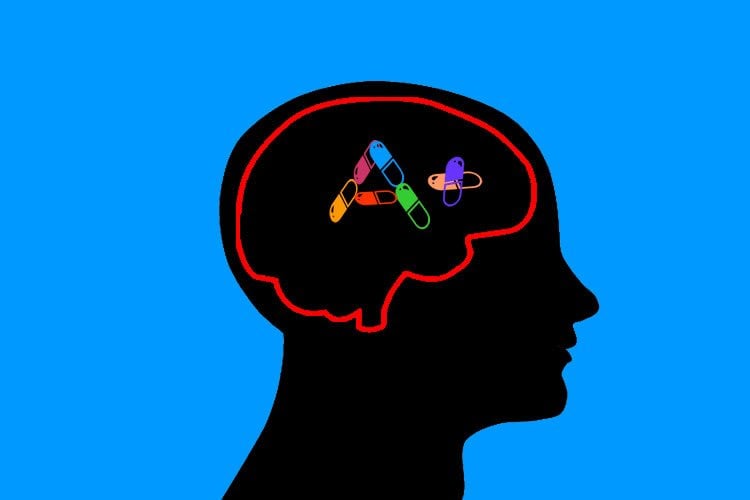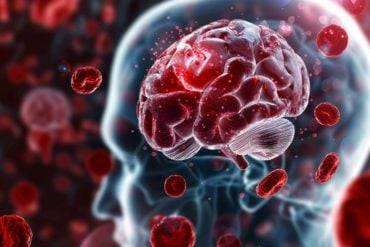Jane Jones has been preparing to take the Medical College Admission Test for months since the culmination of her junior undergraduate studies. She has taken a rigorous course load to fulfill the prerequisites of her desired medical school programs and has built an impressive résumé as a result of her dedication to several clubs and campus-wide activities. Like many prospective medical students, Jane is faced with the imminent pressures to succeed in every area of her academic life, fearing that a single slip could extinguish her dreams of becoming a practicing doctor. To increase her focus as she prepares, Jane begins taking a combination of herbal supplements specifically aimed at improving cognition and closer to exam day she plans on taking modafinil, which is typically prescribed to treat narcolepsy, with hopes of increasing her productivity and overall performance.
Most of the criticism over Jane’s intentions of obtaining a high score on the test would rely on the premise that she is cheating by depending upon nootropics, or nontoxic substances with memory enhancing properties, to achieve success, which may or may not grant her a seat at an institution to begin with. Arguments of this form are valid, but uncritical and inadequate; to correctly evaluate the severity of a healthy person using nervous system stimulants as a means of programming oneself to compete on the same level as the “mentally elite” or simply to get ahead in one’s field, we must take into consideration the reasons why strides are ever made towards improving technologies, and further, neuro-technologies. I am inclined to believe that although such pharmaceuticals can provide a seemingly unfair advantage to users over nonusers, it is not sufficient to categorize medically safe – “safe” in this context meaning addiction-free with minimal side effects – cognitive enhancers as cheat sheets, for they aid in maximizing human performance. After all, to be an active citizen of the Digital Age is to accept the technologies that allow us to augment our capabilities and outputs. Otherwise, we lack a competitive edge.
Before we dive into the arguments surrounding nootropics use as a ‘smart drug,’ it would be vital to our formulation of any perceptions to familiarize ourselves with their known pharmacological effects on cognition. I should take a moment to address that while many people would differentiate between nootropics and cognitive enhancers, I consider the two to be synonymous with each other due to the ways in which they facilitate an increase in neurotransmitter activity in the human brain and I will be using these terms interchangeably.

Background
In 1972, a Romanian chemist by the name of Dr. Corneliu E. Giurgea along with a team of Belgian scientists synthesized piracetam, the first known ‘memory drug’ and still one of the most popular of its kind, and classified this psychoactive substance as a new class of drug known as nootropes (Gualtieri, 2004). The compounds of the drug were observed to support memory processes, especially in people who are experiencing neurodegenerative diseases such as Alzheimer’s disease (AD). Research suggests that it can improve cognitive function through consistent use and has shown promise in delaying the progression of cognitive deterioration in patients (Croisile et. al., 1993). Healthy individuals also reported benefits from piracetam claiming they required less sleep, it increased their verbal fluency, and increased creative thought and abstract thinking.
The discovery of piracetam has propelled the synthesis of various modern smart pills like modafinil. In recent reports, the manufacturers of Provigil, the commercial name for modafinil, have “publicly downplayed the idea that the drug can be used as a smart pill” (Talbot, 2009). To test its infamous properties as a cognitive enhancer, researchers at Cambridge University conducted various standard cognitive tests in which a control group consisting of healthy young male volunteers received modafinil and another group received a placebo. Those who received modafinil performed better in recalling and repeating long strings of numbers, both forward and backward, as well as recognizing visual patterns. The experimenters in this study stated in a 2002 edition of the journal Psychopharmacology that “modafinil selectively improves neuropsychological task performance” (Turner et. al., 2002), meaning the drug provided neural benefits in conjunction with behavioral benefits like alertness and attentiveness.
Artificial Memory Enhancement and the Definition of ‘Health’
The ethical implications of “cosmetic neurology,” or the practice of strengthening ordinary cognition as coined by Anjan Chatterjee, a neurologist at the University of Pennsylvania, are of plenty, but they all fall short in their distinctions of who should be allowed to consume neural enhancement medication. For instance, take into consideration the number of students and adults diagnosed with Attention-Deficit/Hyperactivity Disorder (ADHD) who have been prescribed drugs like Ritalin or Adderall to suppress impairments of neural function. These individuals would not be able to participate in academia or in the professional world as successfully as those without the disorder if they are not medicated. Traditional philosophers on this subject might insist that the act of medicating people with ADHD gives medicine too much power and responsibility. Such philosophers may also support Daniel Callahan’s proposal that the World Health Organization’s (WHO) definition of health is too broad and should not describe mental or social states. However, confining the states of health to account for only a physical state is illogical when disciplines supporting mental health and social wellbeing have been established. The definition of health need be broad for this reason and the marriage of medicine and illness need be broken to accommodate for medicating the healthy. People who seek to aggrandize their cognitive strengths via consumption of nontoxic, neuro-protecting substances should not be precluded from maximizing their cognitive potential especially during a time when pressures to succeed are amplified by the ever-so competitive nature of placement exams and nerve-wracking interviews. Further, a lack of mental deficiency is not enough reason to restrict the acquisition of performance enhancing substances from individuals who seek to improve their cognitive abilities.
Enhancing Drugs and Individual Autonomy
Boosting the brain’s information-retention capacity via consumption of nootropics, as you can imagine, appeals to students who are aiming to achieve academic distinction at the top-tier of their class and adults with demanding careers just as readily as a next-generation iPhone appeals to people who are technologically savvy. However, these substances are currently classified as medicines and non-medical uses are considered illegal (Bell, 2006). If we are not deprived of technological luxuries like the iPhone when we have the means of purchasing one, why should individuals who are healthy and looking to become more efficient members of society be deprived of access to neuro-enhancing supplements? To deprive someone of the ability to expand his or her neural capabilities is of the same nature of selfishness as denying a Wall Street stockbroker of access to his or her smartphone, which he or she may depend upon to communicate effectively through share-related apps and services. People who are opposed to any enhancement technologies enforce restrictions of these substances on the grounds that they are not safe, but these are the same people who fail to recognize common nootropics such as caffeine and their popularity among students and career-oriented individuals. There is potential for abuse of any drug, on or off the market, but nootropics that have been clinically tested like modafinil and caffeine are known to have tolerable adverse effects or even none at all on humans. Thus, the power to decide to adopt nootropics into one’s daily diet should be on the potential user alone, given that he or she has extensively weighed the benefits over the risks under a realistic mindset of the implications of both on his or her life. Should a physician advise against nootropic usage and the patient be so quick to agree with his or her physician’s orders without questioning would be to take a step backward to the dark ages of paternalism in medicine.
Deciding if we should opt to using cognitive enhancers in the course of daily life arises from our fears that seeking pharmaceutical assistance is equivalent to steroids use in the athletic arena. The moral permissibility of the latter is immediately defined as impermissible by national sports organizations, which would deem unnatural performance as means of creating an uneven playing field. This idea wrongfully promotes mainstream rejection of performance-enhancing substances all together – wrongfully because the playing field was never and will never truly be leveled. There will always be a more superior athlete, whether he or she is defined by his or her physical strength or locomotive speed, just as there will always be a student with higher cognitive ability as a result of genetic inheritance. Hence, claims asserting that an unfair advantage is created by the intake of neuroactive substances to assist students in surpassing their basal performance level are lacking and they prevent us from advancing in the fields of pharmaceutical technologies.
Final Thoughts
Mental augmentation is more than a new-age trend or improvement of a person’s lifestyle. Welcoming cognition-enhancing substances into our lives will come with the same baggage consisting of skepticism and pharmacological Calvinism, which suggests that medicine should only be consumed in the presence of illness or disease, as any emerging pharmaceutical technology has experienced in its introductory stages, but we must not tamper with the progress of such technologies by deeming them ethically impermissible when we have come so far as a people in our tolerance of applied science. While I am arguing for the permissibility of nootropic drugs as ‘smart drugs’ to bless competition in challenging environments, I am supportive of opponents’ claims that state celebrated use among people can influence a change in the way we perceive competition. Yet, I am more concerned with the ways in which it can change our definitions of ‘health’ and ‘medicine’ as we learn more about human brain physiology because in this burgeoning age of advancing medical technology, change is inevitable. We should embrace such change.
References
Bell, Vaughan. “Know the Facts About Cognitive Enhancers.” Mind Performance Hacks. N.p.: O’Reilly Media, 2006. N. pag. PDF file. 25 Apr. 2014.
Callahan, Daniel. “The WHO Definition of ‘health'” The Hastings Center Studies (1978): 77-87. PDF file. 25 Apr. 2014
Croisile, B., M. Trillet, J. Fondarai, B. Laurent, F. Mauguière, and M. Billardon. “Long-term and High-dose Piracetam Treatment of Alzheimer’s Disease.” National Center for Biotechnology Information. U.S. National Library of Medicine, Feb. 1993. Web. 26 Apr. 2014.
Gualtieri, C. Thomas. “Cognitive Enhancers and Neuroprotectants.” Brain Injury and Mental Retardation: Psychopharmacology and Neuropsychology. N.p.: Lippincott Williams & Wilkins, 2004. 2+. Web. 27 Apr. 2014.
Russell, Tony, Allen Brizee, and Elizabeth Angeli. “MLA Formatting and Style Guide.” The Purdue OWL. Purdue U Writing Lab, 4 Apr. 2010. Web. 28 Apr. 2014.
Talbot, Margaret. “Brain Gain: The Underground World of “neuroenhancing” Drugs.” The New Yorker, 27 Apr. 2009. Web. 24 Apr. 2014.
Turner, DC, TW Robbins, L. Clark, AR Aron, J. Dowson, and BJ Sahakian. “Cognitive
Enhancing Effects of Modafinil in Healthy Volunteers.” National Center for Biotechnology Information. U.S. National Library of Medicine, 1 Nov. 2002. Web. 27 Apr. 2014.
Zaheera Shabbir is a junior at SUNY Binghamton studying for her B.S. Biochemistry & Integrative Neuroscience, with a Minor in Linguistics.
In addition to content created by NeuroscienceNews.com and press releases, Neuroscience News publishes diverse opinion articles written by outside authors. As with all articles, the views and opinions expressed by authors do not necessarily reflect those of NeuroscienceNews.com. We believe it is important to provide a platform for various views and opinions related to neuroscience.
Written by Zaheera Shabbir
Contact: Zaheera Shabbir – Binghamton University, State University of New York/NeuroscienceNews.com
Source: Neuroscience opinion article submitted to NeuroscienceNews.com by Zaheera Shabbir
Image Source: The image is credited to NeuroscienceNews.com. We release the image into the public domain






